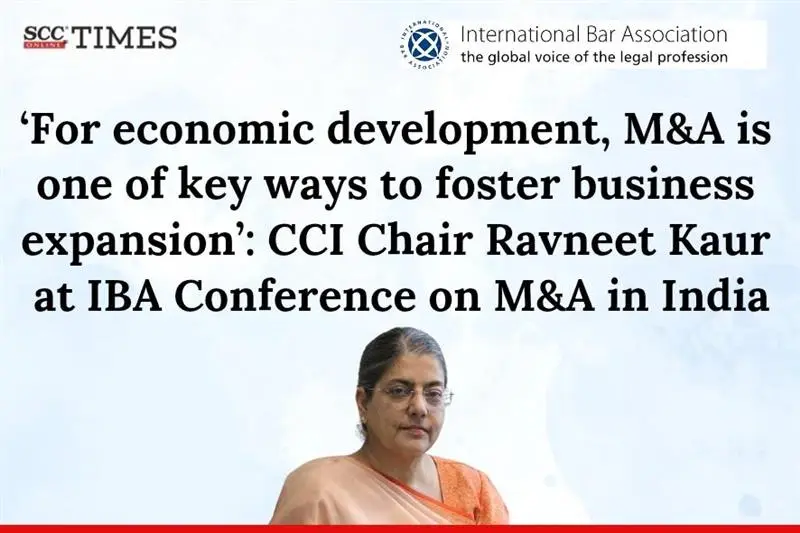Spanning throughout 3rd and 4th April, 2025, the International Bar Association (‘IBA’) Corporate and M&A Law Committee organised a conference on ‘Mergers and Acquisitions in India: a key engine to the USD 30 trillion goal’ with a view to bring together various luminaries and distinguished legal professionals to discuss India’s roadmap towards becoming a 30 trillion-dollar economy.
On ‘Antitrust/competition policy and enforcement’, Ms. Ravneet Kaur, Chairperson, Competition Commission of India (‘CCI’), Delhi, delivered a keynote speech. She explored India’s path towards becoming Viksit Bharat and a USD 30 trillion economy by 2047 from the perspective of competition law.
While underscoring India’s position on the global stage as one of the fastest-growing developing countries with a large consumer base, Ms. Kaur mentioned the various priorities of the Indian Government, such as agricultural productivity, scaling of manpower, energy security, sustainability, and climate change. Talking about climate change, she reflected on India’s focus on renewable energy and meeting energy requirements sustainably. She elaborated on how the primary goal of the Competition Act, 2002 (‘the Act’) was to ensure the economic development of the country. Ms. Kaur furthered that CCI had a pivotal and complementary role in this journey due to its focus on economic development by ensuring a competitive and healthy market environment, especially in the domain of mergers and acquisitions (‘M&A’).
One of the key methods of economic development is M&A, as it is an efficient and organic path of growth. It fosters business expansion and enables innovation by supporting synergies and resource optimisation.
Exploring recent changes in the Indian regulatory framework, she focused on the Competition (Amendment) Act, 2023, which altered the antitrust aspect, such as the settlement commitment frameworks, leniency plus framework, and penalties. She emphasised that the basic purpose of the regulatory framework was to balance stakeholder concerns with the mandate of the Act, in sync with the global best practices. In the M&A aspect, she spoke about the introduction of the deal value threshold as an additional threshold for notifying combinations before the CCI. She explained that the reason behind this change was the need to ensure that killer acquisitions did not escape the competition regime since India had the third-largest start-up ecosystem. Another reason was the advent of new-age markets and business models that were asset-light or not based on assets and turnover. So, the combinations that did not even meet the asset turnover thresholds had to be analysed.
She elaborated that CCI’s focus was on substance rather than form, on clarifying certain provisions, and increasing transparency. Ms. Kaur underscored the need to have standards and practices that were in sync with the world, while keeping in mind India’s specific realities.
Explaining that the regulatory approach in the M&A regime had been trust-based rather than adversarial, Ms. Kaur stated that the CCI was ready to provide clarity and extend trust, but the M&A lawyers, businesses, and law firms also had the responsibility to extend trust and make comprehensive filings with complete factual details.
Regarding the advent of AI and its rapid adoption, Ms. Kaur expressed her concern regarding the inability to identify the kind and level of meeting of minds with respect to the use of AI for bid rigging. However, she also expressed her trust in the cooperation of all stakeholders in the identification of anti-competitive practices resulting from the adoption of AI in various sectors of the economy.
In conclusion, she assured that CCI was clear about and committed to its role in making India a USD 30 trillion economy and encouraged stakeholders to apprise them of issues that needed to be addressed.






